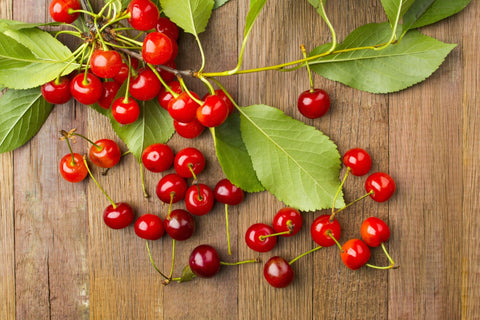The Connection Between Beets and Gout: Are Beets Okay for Gout?
At NutriGardens, we believe nitric oxide and healthy circulation are fundamental to overall wellness. Please explore our nitric-oxide–boosting products. We hope you enjoy the reading.
Beets have picked up in popularity as the internet starts to learn about all their beneficial properties. People have been using beets for centuries and is even considered the most natural energy snack you can have.
So where does this popular vegetable get all its nutrients and what does the science say when it comes to blood flow support? What is the connection between beets and gout?
Here is everything we know and what the science says about beets and gout.
Looking for a BEET ALTERNATIVE for boosting nitric oxide?
Try VitaSpinach Red Spinach Extract. Get the benefit without the beets.
What Is Gout?
Gout is actually a more complex form of arthritis. Arthritis affects up to 54 million adults in the United States at any given time. This means it creates inflammation, swelling, and tenderness in the joints.
But gout gets a little bit more specific, in it that often targets the big toe joint. This is a problem, as most people need to walk around all day, leading to an increase in irritation of gout.
Gout can come and go and is not necessarily static on when it occurs. Many individuals will say that it springs up at night after a long day of walking and being on their feet. This is because the body is trying to recover more at night, leading to an increase in cytokine count to flush out the pro-inflammatory cells.
What Causes Gout?
Unlike other forms of arthritis, there is a connection between gout and high amounts of uric acid in the blood. The high levels of uric acid cause urate crystals to form on the joints, leading to gout.
Normally, it is easy for our body to eliminate uric acid, so this isn't a normal problem. But eating foods that are high in purines, which break down into uric acid, can make it too hard for our body to break it down. When this happens, gout is formed.
Foods high in purines include meat like steak, organ meats, seafood, and extremely high intakes of fructose (which is a fruit sugar). There is also a connection between obesity, high blood pressure, and genetics playing a role in whether we develop gout or not.
Obesity causes our body to produce more uric acid, meaning that it will have a harder time getting rid of it. High blood pressure causes our blood flow to not be optimal, and this leads to our body not being able to flush out uric acid effectively.
Where Does Beets Come Into Play?
Uric acid is plentiful in the blood, and when our blood flow is low, we're dealing with a decrease in the elimination of uric acid. Beets are high in nitrates, which are a necessary component to helping our body produce nitric oxide.
Nitric oxide (NO) is a specific molecule that helps create vasodilation, which tells our body to widen blood vessels and increase circulation. When we have increased blood flow, we are getting an increase in anti-inflammatory cells to gout affected areas. By doing this, we can see a decrease in swelling and inflammation.
This is why eating your vegetables is so important. Other important vegetables that are high in nitrates are spinach, arugula, dark lettuce, and celery. Though beets do contain the highest number of nitrates of the ones listed.
Are beets bad for gout? Absolutely not, and while beets themselves may not be everyone's favorite vegetable, picking up Beet Boost can provide you with tasty beets into the diet, without the earthy taste that comes with them.
Looking for a BEET ALTERNATIVE for boosting nitric oxide?
Try VitaSpinach Red Spinach Extract. Get the benefit without the beets.
What About Tart Cherries?
Tart cherries are often talked about for their uric acid cleansing properties, but does the science hold up to that? One study by Bell et al. shows that tart cherries were effective at reducing the amount of uric acid found in the body.
While this is just one study and warrants more research, this does look promising. The study finds that the higher amounts of anthocyanin, which is the powerful antioxidant found in tart cherries, to be responsible for this possible reduction in uric acid.
What Can You Do to Prevent Gout?
Preventing gout is just as important as treating it. If you know your family is prone to getting gout, see what their eating habits are like and what they are doing throughout life to prevent gout from happening.
The first and foremost is to keep a consistent diet of vegetables that are high in nitrates. Only around 1 and 10 adults get the daily fruit and vegetable intake recommendations according to the CDC. Make sure to be that one and ten.
Exercising is just as important. Exercising is a great way to help prevent high blood pressure from occurring, which can correlate with lowering the amount of uric acid in the system. Staying active is also a great way to prevent obesity, and when we are not obese, our body does not produce as much uric acid.
Limit intake of high fructose corn syrup, which is a common ingredient in many sweetened beverages. Added sugar can lead to an increase in gout, as well as high blood pressure, and an increased risk of cardiovascular disease.
Beets and Gout: Know How the Two Work
The connection between beets and gout is there but requires more science before we can really verify if red beets and gout are connected. For now, we do know beets are an extremely important part of the diet and should not be skipped on.
If you want to learn more about beets and the role nitric oxide plays on our body, be sure to check out the rest of our blog. If you know someone that could use some extra beets and tart cherries in their diet, be sure to tell them about Beet Boost and share this article with them.
Looking for a BEET ALTERNATIVE for boosting nitric oxide?
Try VitaSpinach Red Spinach Extract. Get the benefit without the beets.




Comments (0)
There are no comments for this article. Be the first one to leave a message!